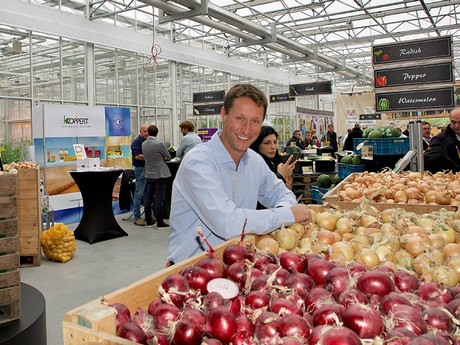With his appointment as Hazera’s new CEO, Nicolas Tinel is ‘the right man for the job’ because of his twenty years of experience at Limagrain, one of the largest seed companies in the world.
Nicolas will take time to visit all the divisions and listen to what people have to say. “For the time being, my main task will be to improve all lines of communication within the company; ‘connecting the dots’.” Also, in line with his modesty, he has great respect for what his predecessors have achieved.

Close to customers
This approach to his new job matches Hazera’s focus on knowing and understanding their customers’ needs. “Which is quite a challenge because our work involves living nature, and the world is constantly changing. But, thanks to Hazera’s headquarters being situated in Israel and the Netherlands, as well as subsidiaries in twelve countries and an extensive distribution network, we are always close to our customers. At the same time, we benefit as part of the Limagrain Group, an international agri-business based in France. Being a farmers’ cooperative, the Limagrain Group understands the needs of its customers and has grown to become the largest vegetable group company in the world.”
Nicolas Tinel has been working for parent company Limagrain for over twenty years. After his appointment at Limagrain in 1999, he was on the cusp of a special kind of world tour. As a sales manager, he lived and worked in five different countries including India and the United States. In this way, he gained a lot of knowledge about the various products and their areas of production. Nicolas knows the seed industry’s DNA and understands what its customers want.
High ambitions
Nicolas has high ambitions. “I want Hazera to continue to grow. Not only in volume, but also by making an even greater difference in quality. Taste is very important to this. Furthermore, I aim to make our products as attractive as possible for both farmers and consumers. For instance, by improving our products’ resistance to diseases and climate changes, and by higher yields and better storage. And, of course, we will look at ways to reduce environmental burdens and, thereby, costs.”
 Hazera Seeds
Hazera Seeds